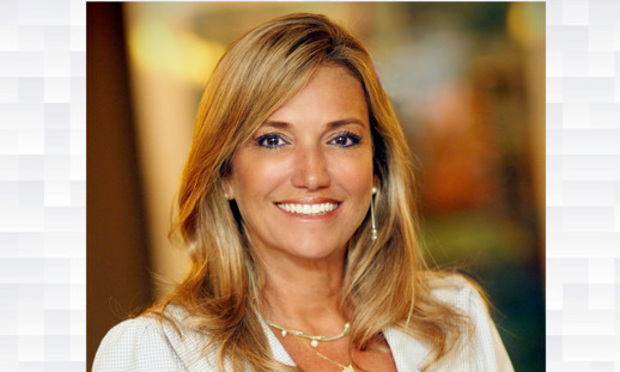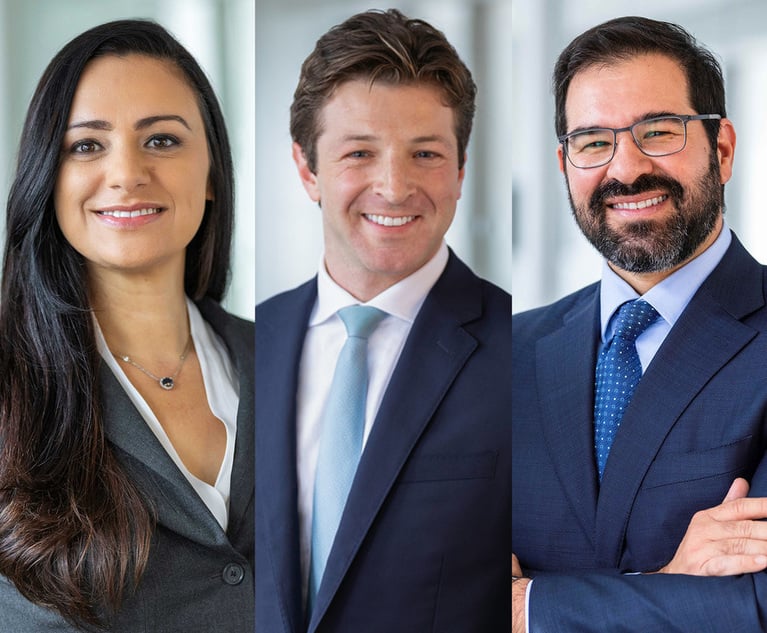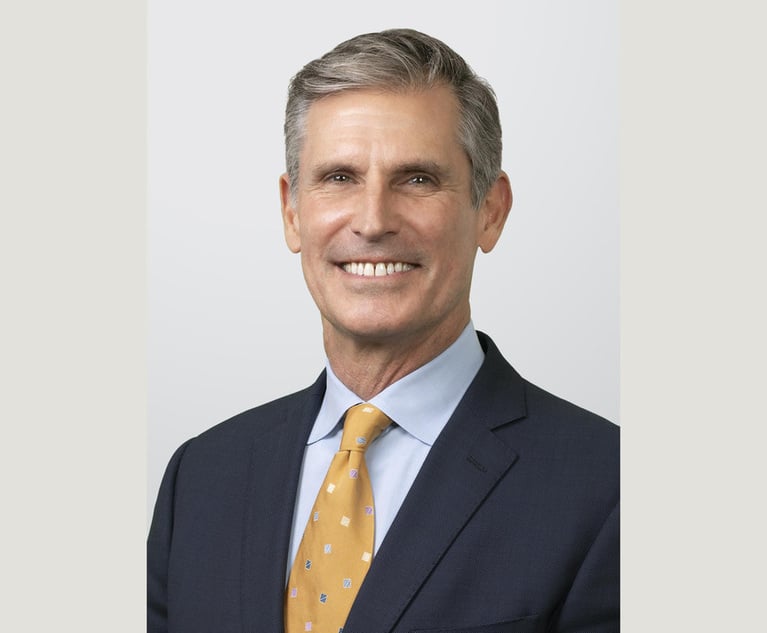Increased FCPA Enforcement, Awareness Has Meant More Work For Lawyers
An FBI agent and an Akerman partner discuss enforcement of the Foreign Corrupt Practices Act at the fifth annual ALM-Akerman U.S. Latin America Legal Summit in Miami.
November 10, 2017 at 03:58 PM
7 minute read
 Jacqueline Arango
Jacqueline Arango The more than 50 FBI agents who investigate cases of foreign corruption involving companies with U.S. ties have increasingly built partnerships with their foreign counterparts, leading to more shared global investigations.
FBI Supervisory Special Agent Leslie Backschies spoke to dozens of lawyers about enforcement of the Foreign Corrupt Practices Act at the fifth annual ALM-Akerman U.S. Latin America Legal Summit in Miami on Friday. Jacqueline M. Arango, a partner and chair of the white-collar crime and government investigations practice at Akerman, interviewed Backschies before an audience at the conference.
Increased global enforcement has led to more and increasingly complex investigations. It also has led to greater awareness on the part of companies that they need to establish anti-bribery and compliance programs. This has translated into increased work at law firms related to the FCPA and to related money laundering.
Arango said that six years ago a large client asked her to discuss FCPA with his company's board of directors, only because he had happened to hear about it at a conference.
“I got that work because of awareness,” Arango said. “I definitely see much more awareness, and that brings business.”
She said about a quarter of her practice now is dedicated to FCPA investigations and compliance. She is currently handling investigations in Brazil, Peru, Ecuador and Djibouti, Africa.
FCPA compliance programs are based on the concept that voluntarily investigating and submitting discovered information to federal investigators about a bribery abroad will allow companies to receive leniency in fines and in some cases avoid negative publicity. Agents speak at panels emphasizing that companies that cooperate fully will get better treatment.
The FCPA actually turns 40 years old this month, but resources for its enforcement and creating awareness about voluntary disclosure have grown over the last few years, as has the concept that bribery and corruption contribute to fueling radical movements abroad.
Two and a half years ago, the FBI formed an international corruption squad to investigate companies and business people for bribery that is unlawful under the act.
“We have to turn down cases,” Backschies said. “My agents are completely overworked. They travel all over the world. They are in total dedication to this work.”
Not only has that enforcement prompted companies to hire lawyers to create compliance programs to guide internal investigations, but legal hiring within those investigations has grown as well.
When the Department of Justice announced that to get leniency companies would have to turn over their internal investigations and emphasized naming those responsible for possible criminal charges, corporate boards took notice of what it meant for them individually.
“How do you get your executives or high-level managers to cooperate in an internal investigation if they know that the company generally can't get leniency credit unless the company turns over the results of the investigation, as well as the names of high ranking individuals who may have been involved or had knowledge of the wrongdoing?” asked Marcia Narine Weldon, a professor of legal writing and compliance at the University of Miami School of Law, who attended the discussion.
“They're not going to want to talk to me,” Arango agreed. “That's going to be difficult for my internal investigation.”
But the investigation can continue, she said.
Executives often speak with a lawyer before participating in the investigation, even if they didn't do anything wrong, Narine Weldon said. And sometimes the company even pays the executive's attorney fees.
 Jacqueline Arango
Jacqueline Arango The more than 50 FBI agents who investigate cases of foreign corruption involving companies with U.S. ties have increasingly built partnerships with their foreign counterparts, leading to more shared global investigations.
FBI Supervisory Special Agent Leslie Backschies spoke to dozens of lawyers about enforcement of the Foreign Corrupt Practices Act at the fifth annual ALM-Akerman U.S. Latin America Legal Summit in Miami on Friday. Jacqueline M. Arango, a partner and chair of the white-collar crime and government investigations practice at Akerman, interviewed Backschies before an audience at the conference.
Increased global enforcement has led to more and increasingly complex investigations. It also has led to greater awareness on the part of companies that they need to establish anti-bribery and compliance programs. This has translated into increased work at law firms related to the FCPA and to related money laundering.
Arango said that six years ago a large client asked her to discuss FCPA with his company's board of directors, only because he had happened to hear about it at a conference.
“I got that work because of awareness,” Arango said. “I definitely see much more awareness, and that brings business.”
She said about a quarter of her practice now is dedicated to FCPA investigations and compliance. She is currently handling investigations in Brazil, Peru, Ecuador and Djibouti, Africa.
FCPA compliance programs are based on the concept that voluntarily investigating and submitting discovered information to federal investigators about a bribery abroad will allow companies to receive leniency in fines and in some cases avoid negative publicity. Agents speak at panels emphasizing that companies that cooperate fully will get better treatment.
The FCPA actually turns 40 years old this month, but resources for its enforcement and creating awareness about voluntary disclosure have grown over the last few years, as has the concept that bribery and corruption contribute to fueling radical movements abroad.
Two and a half years ago, the FBI formed an international corruption squad to investigate companies and business people for bribery that is unlawful under the act.
“We have to turn down cases,” Backschies said. “My agents are completely overworked. They travel all over the world. They are in total dedication to this work.”
Not only has that enforcement prompted companies to hire lawyers to create compliance programs to guide internal investigations, but legal hiring within those investigations has grown as well.
When the Department of Justice announced that to get leniency companies would have to turn over their internal investigations and emphasized naming those responsible for possible criminal charges, corporate boards took notice of what it meant for them individually.
“How do you get your executives or high-level managers to cooperate in an internal investigation if they know that the company generally can't get leniency credit unless the company turns over the results of the investigation, as well as the names of high ranking individuals who may have been involved or had knowledge of the wrongdoing?” asked Marcia Narine Weldon, a professor of legal writing and compliance at the
“They're not going to want to talk to me,” Arango agreed. “That's going to be difficult for my internal investigation.”
But the investigation can continue, she said.
Executives often speak with a lawyer before participating in the investigation, even if they didn't do anything wrong, Narine Weldon said. And sometimes the company even pays the executive's attorney fees.
This content has been archived. It is available through our partners, LexisNexis® and Bloomberg Law.
To view this content, please continue to their sites.
Not a Lexis Subscriber?
Subscribe Now
Not a Bloomberg Law Subscriber?
Subscribe Now
NOT FOR REPRINT
© 2025 ALM Global, LLC, All Rights Reserved. Request academic re-use from www.copyright.com. All other uses, submit a request to [email protected]. For more information visit Asset & Logo Licensing.
You Might Like
View All
Florida Judge Denies Motion to Dismiss in $150M Plane Crash Lawsuit Involving Flow La Movie
3 minute read

Holland & Knight Expands Corporate Practice in Texas With Former Greenberg Traurig Partner
3 minute read
Forum Clause Axes $844M Case Against Reinsurer Over Deadly Plane Crash, Judge Rules
Trending Stories
- 1Florida Law Schools Are Seeing a Bump in Applications for 2025, After Recent Declines at Flagship Schools
- 2Processes, Challenges and Solutions In Lateral Partner Integration
- 3Attorneys 'On the Move': Herrick Bolsters Tech Practice with IP Partner; Cozen O’Connor Adds Member to Its Fund Formation Group
- 4NJ Jury Awards $4.5M After Woman Trips on Carpet
- 5Blake Lively Is Sued by Texas Crisis Specialist in Latest 'It Ends With Us' Lawsuit
Who Got The Work
J. Brugh Lower of Gibbons has entered an appearance for industrial equipment supplier Devco Corporation in a pending trademark infringement lawsuit. The suit, accusing the defendant of selling knock-off Graco products, was filed Dec. 18 in New Jersey District Court by Rivkin Radler on behalf of Graco Inc. and Graco Minnesota. The case, assigned to U.S. District Judge Zahid N. Quraishi, is 3:24-cv-11294, Graco Inc. et al v. Devco Corporation.
Who Got The Work
Rebecca Maller-Stein and Kent A. Yalowitz of Arnold & Porter Kaye Scholer have entered their appearances for Hanaco Venture Capital and its executives, Lior Prosor and David Frankel, in a pending securities lawsuit. The action, filed on Dec. 24 in New York Southern District Court by Zell, Aron & Co. on behalf of Goldeneye Advisors, accuses the defendants of negligently and fraudulently managing the plaintiff's $1 million investment. The case, assigned to U.S. District Judge Vernon S. Broderick, is 1:24-cv-09918, Goldeneye Advisors, LLC v. Hanaco Venture Capital, Ltd. et al.
Who Got The Work
Attorneys from A&O Shearman has stepped in as defense counsel for Toronto-Dominion Bank and other defendants in a pending securities class action. The suit, filed Dec. 11 in New York Southern District Court by Bleichmar Fonti & Auld, accuses the defendants of concealing the bank's 'pervasive' deficiencies in regards to its compliance with the Bank Secrecy Act and the quality of its anti-money laundering controls. The case, assigned to U.S. District Judge Arun Subramanian, is 1:24-cv-09445, Gonzalez v. The Toronto-Dominion Bank et al.
Who Got The Work
Crown Castle International, a Pennsylvania company providing shared communications infrastructure, has turned to Luke D. Wolf of Gordon Rees Scully Mansukhani to fend off a pending breach-of-contract lawsuit. The court action, filed Nov. 25 in Michigan Eastern District Court by Hooper Hathaway PC on behalf of The Town Residences LLC, accuses Crown Castle of failing to transfer approximately $30,000 in utility payments from T-Mobile in breach of a roof-top lease and assignment agreement. The case, assigned to U.S. District Judge Susan K. Declercq, is 2:24-cv-13131, The Town Residences LLC v. T-Mobile US, Inc. et al.
Who Got The Work
Wilfred P. Coronato and Daniel M. Schwartz of McCarter & English have stepped in as defense counsel to Electrolux Home Products Inc. in a pending product liability lawsuit. The court action, filed Nov. 26 in New York Eastern District Court by Poulos Lopiccolo PC and Nagel Rice LLP on behalf of David Stern, alleges that the defendant's refrigerators’ drawers and shelving repeatedly break and fall apart within months after purchase. The case, assigned to U.S. District Judge Joan M. Azrack, is 2:24-cv-08204, Stern v. Electrolux Home Products, Inc.






